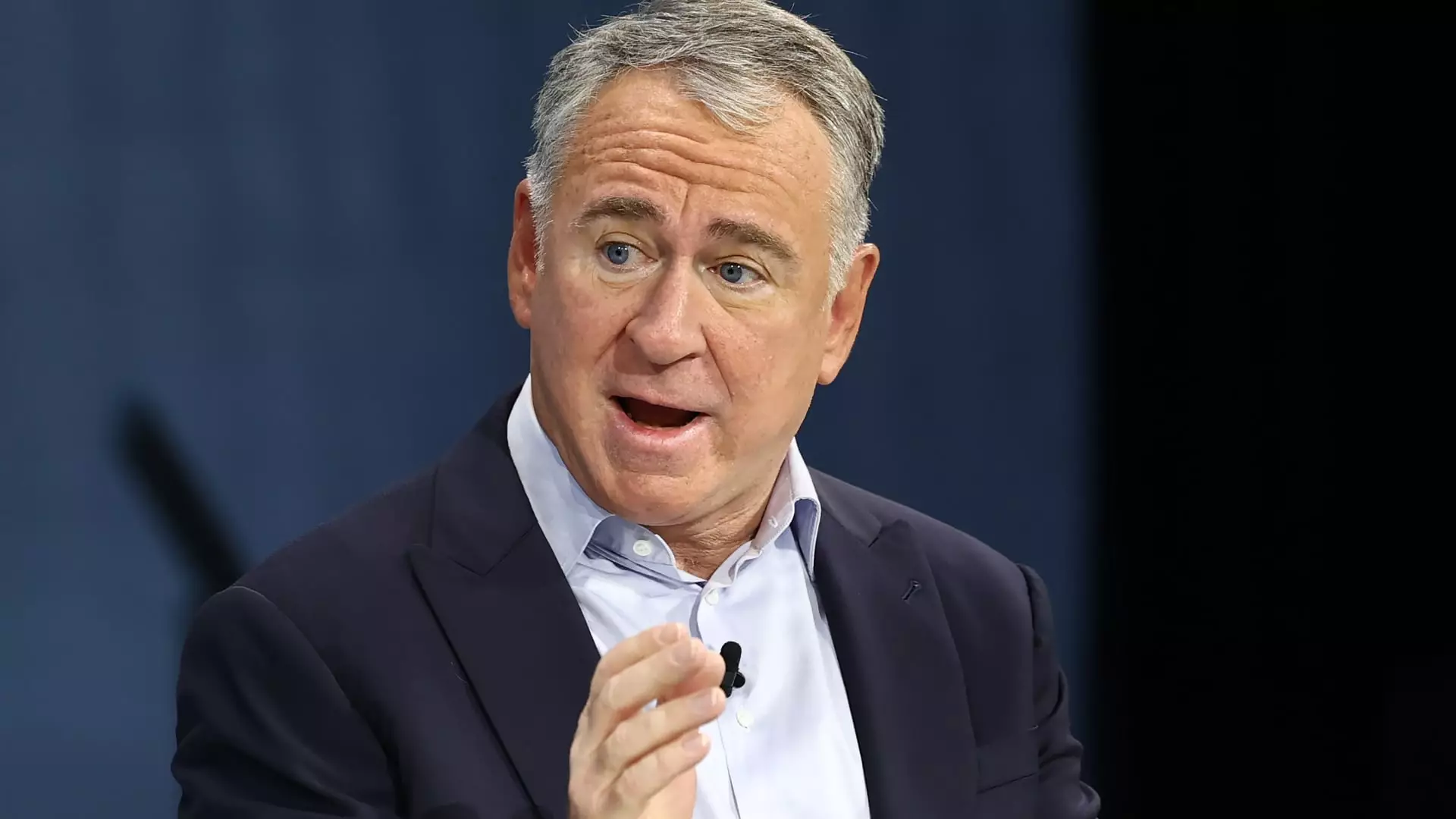In recent years, the U.S. has witnessed an increasingly aggressive approach to trade policy, particularly under the administration of Donald Trump. This tactic has sparked significant debate among business leaders and economists alike, highlighting the potential long-term ramifications of such strategies on the global economic landscape. Ken Griffin, CEO of Citadel, has emerged as a vocal critic of this style of negotiation, emphasizing the need for stable and predictable trade relations.
During a recent speech at the UBS Financial Services Conference in Key Biscayne, Florida, Griffin articulated his concerns regarding the damaging effects of inflammatory rhetoric in trade discussions. He asserted that aggressive posturing could undermine trust between the U.S. and its trade partners, stating, “the damage has already been done.” His point underscores a broader concern that relying on bombastic language to negotiate could alienate allies and deter potential investors, creating an uncertain economic climate.
Griffin’s observations are particularly relevant in light of recent policy actions, such as the implementation of tariffs on steel and aluminum imports and the ongoing tariffs on Chinese goods. These measures are viewed as attempts to rectify perceived imbalances in trade but may fuel retaliatory actions that could escalate economic tensions.
The Impediments Faced by Multinational Corporations
One of Griffin’s most pertinent arguments deals with the challenges faced by multinational corporations operating in this volatile environment. He pointed out that the unpredictability created by tariff policies complicates long-term planning for these businesses. “It makes it difficult for multinationals, in particular, to think about how to plan for the next five, 10, 15, 20 years,” Griffin noted. This uncertainty can deter investment in infrastructure and expansion projects, adversely affecting job creation and economic growth.
As companies grapple with the implications of tariffs, they may need to reassess their operational strategies. The potential for a prolonged trade war could also shift the landscape of global supply chains, prompting firms to seek more stable environments for manufacturing and service delivery.
Griffin has previously raised alarms about the risk of crony capitalism as a byproduct of tariff policies. This economic phenomenon arises when business leaders forge close ties with government officials, leading to preferential treatment and a distortion of free-market principles. It poses a significant risk to economic efficiency and could foster an environment where decisions are made based on political relationships rather than market dynamics.
As the trade rhetoric marks a departure from established norms, the potential for cronyism becomes a pressing concern. Business leaders may feel compelled to engage in political maneuvering to protect their interests, which can further entrench divisions within the economic fabric of the nation.
As Ken Griffin has highlighted, the current trajectory of U.S. trade policy necessitates a reevaluation of tactics employed in negotiations. The stakes are high for multinational corporations and the overall economic landscape, making it essential for policymakers to cultivate a climate of trust and collaboration. Rhetoric should be tempered with a focus on constructive engagement to ensure that the U.S. retains its standing as a reliable trading partner on the global stage. A balanced approach will not only protect American interests but also foster an environment conducive to sustainable economic growth.

